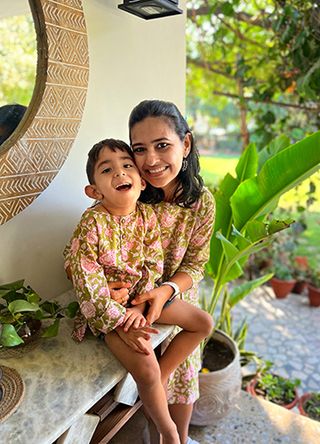Remember those rainy days we wore raincoats, opened our umbrellas and gave a gleeful chuckle? Akshada Singh, 17, worries what the rain might do to the crops, and how it might impact farmers. The Delhi-based climate activist, who is also the founder of Vivid Petals, which is an organisation to create awareness on concerns of humanity and environment, said, “Climate anxiety is real. Climate change is scary. We have borrowed this earth and people are worried about its future. There is concern for the future generation. People have anxiety about the future. I feel it, too.”
Climate anxiety, or eco-anxiety, is a fairly new term. A 2021 Lancet global survey found people across ten major countries apprehensive about climate change. The survey included young people and children from Australia, Brazil, Finland, India, Nigeria, the Philippines, Portugal, the UK, and the US. In a 2020 report by the UK's Royal College of Psychiatrists, over 57 per cent psychiatrists were seeing young people distressed about climate crisis.
Climate anxiety is a state of feeling anxious, fearful, or even sad, while thinking of the climate crisis and the collective failure of governments and large companies.
Delhi-based psychotherapist Agrima Chatterjee said, “Eco-anxiety has had a huge impact on our wellbeing. We tend to be worried about the wellbeing of generations to come―thoughts such as will the next generation have a sustainable planet arise.” Chatterjee has worked with There is No Earth B, which is on a mission to save earth and bring about change at the ground level. “The climate change warriors in the organisation left because of burnout. So I was asked to come and understand as to why that happened. We identified about 20 people who were feeling a sense of despair. No matter how consistent they were, it felt as though recovery was difficult, which led to a feeling of hopelessness [in them]. They were directed to [undergo] therapy,” Chatterjee said.
She said creating a boundary between what is in your control and what isn't is the key to prevent the scales from being tipped over. “Keep making changes that can help mitigate climate change. At the same time, find a support group. Talk to your peers and that will help you realise that you aren't alone. It will prevent you from feeling isolated. Try looking at the bigger picture and understand that this isn't on you―corporations are more responsible; remember that change is happening, even if it is on a small level,” she said.
Activist Anmol Ohri, 25, from Jammu, said, “I certainly have climate anxiety. I have it as I am talking to you. I am sweating copiously. It is because people we left in charge of society didn't do anything about it. We are trying to do a lot, but aren't able to do enough.” When I asked Ohri what aspect of climate change scares him the most, he replied, “The issue on the whole scares me. The whole system is messed-up and everything is interconnected. The idea of development that was taught to us is an antithesis to our survival as a species. Modern education is opposite to what people like us believe. People keep saying save the earth, it is about us―not the earth. The earth will survive, we won't.”
Sonika Bhasin, 42, from Mumbai, also has climate anxiety. “I have even taken therapy. I have felt depressed and helpless and broken down several times,” she said. Bhasin, who practices green habits like composting and buying package-free grocery and homecare products, recalls a time she was moved to tears. “It was after I saw a video titled, 'Granddaughter's eyes'. In it you view the world through your granddaughter's eyes. After watching it, I started crying. I started getting worried about what would happen to my son! I started to wonder what I could do to cope with it, what I could do to save the planet,” she said.
Bhasin is educating her four-year-old son about climate change. She taught him simple things like carrying a cloth bag, spoon and fork to avoid producing waste. She is also educating her family on ways to save the planet. “This is a common topic at our dinner table,” she said.
Darsh Vatsa, 16, director of the ResistTwo Foundation, said, “I have climate anxiety, but I haven't taken help for it as yet. Instead, I try to redirect my worry towards taking decisions, planning what to do, so on and so forth.” ResistTwo is a youth collective working to generate awareness on issues ranging from plastic pollution to the lack of queer representation in the climate space.



